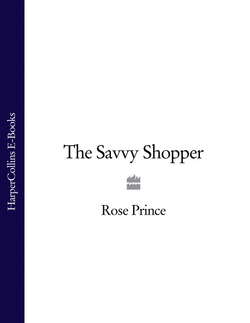Читать книгу The Savvy Shopper - Rose Prince - Страница 14
The free market and fair trade
ОглавлениеLove it or hate it, the Western world is more or less open to trade, although the term free trade is an interesting two-way street, with different rules in each carriageway. Whether free trade is right or wrong, one thing is certain: aspects of it are grossly unfair both to us and to exporting countries. We import what are, in our terms, cheap goods with abandon; the exporting countries pay through the nose to do so via export levies.
Aid agencies campaign for trade barriers to be lifted between the West and developing or ‘third’ countries as a cure for poverty. If barriers were lifted on both sides, however, all hell would break loose. Under our current system, the West could ‘get there first’, meaning it would flood the poorer countries’ food supply chains with dumped goods grown under our subsidy system – it already does to an extent – negating the developing countries’ need to grow their own. It would also move in and set up business for export, which would likely make the few, rather than the many, rich.
But if, as aid agencies want, the trade barrier is lifted to favour only the developing countries, then – in terms of food – we may find ourselves unwittingly buying goods made to a standard that would not be permitted in the UK. This is already happening, between the UK and other EU member states, which are permitted to use production methods denied to us for food safety and animal welfare reasons.
British farmers operate under the most stringent food production rules in the world, and yet we are importing food that could not legally be sold if it had been made here. Because the majority of shoppers buy purely on price, lifting trade barriers to allow more cheap imports could spell the end of British farming and food production. Close the free market? No, we would put an end to centuries of culinary curiosity.
This is a case for shoppers to be circumspect about what they buy – and when they buy it. The sensible choice is to support British food production where standards are higher, as with meat; buy into our gluts of fruits and vegetables when they are in – avoiding the cheaper Spanish equivalent sitting beside it; and always buy with a mind to support small food businesses.
The worldwide commodity exchange has been held responsible for some of the appalling poverty among farmers in the developing world. When oversupply pushes prices down, farmers fall quickly into debt. In 1992 the Fairtrade Foundation was formed by CAFOD, Christian Aid, Oxfam, New Consumer, Traidcraft and the World Development Movement. They were later joined by the Women’s Institute. The idea of fair trade is for retailers to deal directly with farmers’ co-operatives or producer groups, committing to a minimum price in spite of supply. The stories emerging about fairly traded foods are encouraging – a case where changing shopping habits has had a positive effect on the lives of Windward Island banana farmers, Rwandan coffee growers and Palestinian olive oil producers. Beware, however, the attempts currently being made by giant food conglomerates to jump on the Fairtrade bandwagon and gain certification for one product while they continue to trade less ethically with the producers of all their other foods.
It’s not wholly offensive to mention in the same breath that it would be nice if some fair trading went on at home. Dairy and other livestock farms will become extinct in the UK unless a fair price is paid for milk by the main dairies and the supermarkets that buy from them. If there were no livestock farms in the UK, we would end up with a landscape that was a mixture between a national park and a weed-infested wilderness, and a diet of 100 per cent imported meat.
